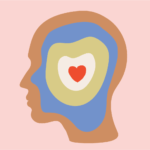Mental Health
At SurvivorNet, we believe that taking care of mental health is as critically important as any kind of healthcare. We've consulted top doctors in the field to offer important resources for those who may be struggling with their mental health and seeking treatment or solutions.
Explore popular articles and topics related to caring for mental health
Mental Health: Seeking Help
Explore popular articles and topics related to caring for mental health
Mental Health: Coping With Anxiety
Vulnerability & Learning Acceptance
For some people, mental health struggles may manifest themselves as feelings of anger. Dr. William Breitbart, chair of the Department of Psychiatry and Behavioral Sciences at Memorial Sloan Kettering Cancer Center, says that anger is to go-to response for some when they feel they have fallen short, or will fall short, of some life goal.
Psychiatrist Dr. William Breitbart explains how he helps patients deal with feelings of anger and frustration.
This anger and frustration may arise from a new challenge, a perceived failure, or just general feelings of hopelessness. Dr. Breitbart explained that one way professionals can help those dealing with these feelings is to encourage them to accept themselves the way they are only human.
"The last resort of relieving existential guilt is this act of being able to forgive yourself for being a human being that is vulnerable and susceptible to not being able to fulfill their full potential. So, it's forgiveness ultimately," he explains.
Understanding Stressors
When a stressful life event occurs, people may react with a range of different (and quickly changing) emotions. This is completely normal. "The way people respond is very variable," Psychiatrist Dr. Lori Plutchik tells SurvivorNet. "Very much consistent with how they respond to stresses and challenges in their life in... Read More
Treatment
Treatment options for people struggling with mental health really run the gamut. While some people may benefit from seeking the help of a psychologist and getting on medication, others see great improvement by simply implementing some lifestyle changes, such as prioritizing exercise and cutting back on alcohol.
Those struggling should know that they are not alone about one in five American adults has experienced some sort of mental health issue, according to mentalhealth.gov. However, what worked to help someone else cope may not necessarily help you as treatment must be individualized.
To maintain a positive mindset and address mental health struggles you may be having, treatment may include:
- Seeking professional help from a psychiatrist or therapist
- Learning healthy coping skills
- Medication such as antidepressants
- Adding more physical activity to your routine
- Adjusting your sleep schedule
- Connecting with others via support groups
- Mindfulness and meditation
Dr. Scott Irwin, a psychiatrist at Cedars-Sinai Medical Center, explains how talk therapy can help patients dealing with grief.
Gratitude & Mental Wellness
Gratitude: what is it and why does it matter? You've probably heard the word thrown around here and there when discussing complex concepts. But living with gratitude is quite simple in its meaning. It means being thankful for what you have and showing appreciation in your day to day life and it can be really helpfu... Read More
How Can Genetics Affect Treatment?
If you and your doctor do decide that medication would be helpful in your situation, genetic testing can sometimes be used to help determine which medication is most likely to work for you and cause the least amount of side effects.
“Doing the genetic testing has absolutely transformed the landscape of psycho-pharmacology,” psychiatrist Dr. Lori Plutchik tells SurvivorNet. “It’s something that I highly recommend for anybody that is taking medication.”
Psychiatrist Dr. Lori Plutchik explains how genetic testing can be used to determine the best form of medication to treat mental health issues.
Genetic testing can give a profile of how a person is likely to respond to different types of psychiatric medications, Dr. Plutchik explains. Testing is also available to create a profile of how patients will likely respond to different sorts of pain medications, which can be really beneficial for those going through some other sort of health issue.
Mental Health: The Power of Mindfulness
Diagnosing Mental Health Issues
If you have been dealing with anxious or hopeless feelings, you may be wondering if it’s time to talk to a professional about your mental health. There are a plethora of treatment options available to help get mental health in check, but it’s important to realize what you’re up against first.
People dealing with the trauma of an illness such as cancer, for example, may benefit from several different types of therapy including counseling or even something like psychotherapy. Dr. Daynelle Dedmond, a gynecologic oncologist at Centura Health in Colorado Springs, told SurvivorNet in a previous conversation about mental health that her patients very frequently need some sort of help while going through the treatment process.
“A psychotherapist is a … professional that is trained in techniques to help patients through trauma, and [it’s] different than counseling,” Dr. Dedmond said. “Sometimes counseling is more of a conversation, whereas a psychotherapist uses techniques that have been proven to help patients through trauma in a very successful fashion.
Dr. Daynelle Dedmond, a gynecologic oncologist at Centura Health in Colorado Springs, explains that her patients often seek some sort of mental health treatment.
“The prescription of medicine depends on [the doctor’s] level of training and licensure,” she continued. “Counselors don’t necessarily and usually don’t prescribe any types of medication. Psychotherapists use special techniques, psychotherapy techniques, and medication is not always a part of that. Medical doctors are also trained specifically in the use of medications, and those medications may be antidepressants, antipsychotics, anti-anxiety medication to help relax a patient, or they may be medications to help patients sleep.”
Dr. Dedmon noted that patients may see a counselor as well as a medical doctor for medication.
Mental Health: Inspiring Stories
Mindfulness & Meditation
For some people, learning how to slow life down and live in a certain moment can have great benefits for mental health. Mindfulness is the feeling of being fully present in the moment. And when it comes to meditation, there’s a great deal of scientific research that shows it can be really helpful for people facing some sort of challenge.
Acclaimed author and pioneer of the mindfulness movement Deepak Chopra told SurvivorNet in a previous conversation that a big step in taking charge of mental health is understanding what stress does to our bodies.
“Stress is nothing other than the perception of threats,” Dr. Chopra said. "Whether it's real or imagined doesn't matter. You perceived stress emotionally or you imagine a super stressful, threatening situation it doesn't matter. It will create the same biological responses, compromising your immune system to basically offset its fine tuning and also increasing inflammation.”
Recognizing where this stress comes from can help in the healing process for some.
Dr. Marianna Strongin, a clinical psychologist, explains how patients can learn to cope with their anxieties.
Clinical psychologist Dr. Marianna Strongin told SurvivorNet that sometimes, anxiety is caused by questions we ask ourselves and feel, or fear, we don’t have the answers to. If you are really struggling, a therapist may be able to help you find answers to your internal questions, and learn tactics to cope with the ones you can’t answer.
“How often are you checking in with your anxiety?” Dr. Strongin asked. “Where do you feel it in your body? And what are the questions that it’s asking you? Is it asking you, is everything going to be OK? What’s happening? Will I survive? Now, the second most important thing is, are you providing it some answers? The answers are our coping skills.”






